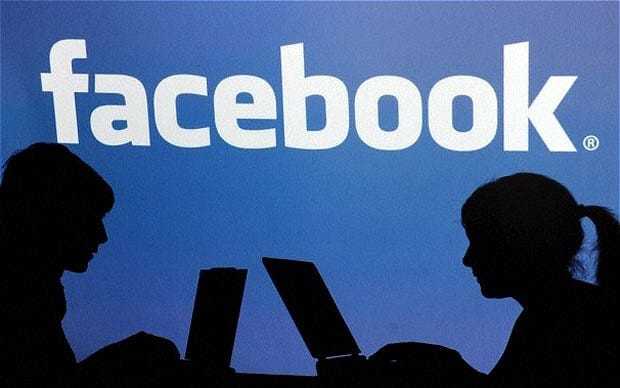With a South Korean court overruling the media regulator’s decision to fine Facebook Korea for a network outage in 2017, content providers are raising pressure on the government to amend regulations on network usage fees.
Google, Facebook and Netflix have partnered with local tech companies including Naver and Kakao in ramping up criticism that the “network sharing” regulation has caused excessive financial burdens for content providers here and abroad.
The criticism intensified after the court ruled last week that it was unlawful for the Korea Communication Commission to impose a fine of 396 million won ($367,000) on Facebook for delaying access for local internet users by changing network connection routes.
“The crux of the issue lies at excessive burden on network usage and never-before-seen network-sharing regulation,” the content providers said in a joint statement with associations of local startups and internet companies.
 |
123rf |
The network-sharing regulation, enacted in 2016, ended the principle of ignoring costs that occur when internet service providers (ISP) send data to and from each other, which was based on the proposition that they are on equal footing and the networks are “public good.”
The regulation mandates ISPs to calculate and allocate costs that are created when large amounts of data are exchanged between one another. It stipulates that the ISP from which the traffic originates should shoulder most of the cost of providing that service.
The regulation, while always the subject of debate, was thrown into the limelight in 2017, when KT suddenly faced a huge bill for the massive amount of Facebook traffic it was hosting. KT had been operating the cache server for Facebook. SK Broadband and LG Uplus demanded KT pay more for the traffic created through its cache server dedicated for Facebook.
KT then urged Facebook to pay more for using its network services in Korea, which Facebook rejected. Instead, it decided to reroute users of other ISPs to its servers in Hong Kong, causing network delays to SK Broadband users and others.
“If it had not been for the network-sharing regulation, there would not have seen such problem,” said an official from local content provider. “It is a battle between telecom firms and Facebook over who should pay more for improving the network service.”
The firms that run popular data-heavy services like video-sharing service YouTube and the KakaoTalk messenger app claimed the regulation has been “exploited” by local internet service providers.
According to related companies, the network-sharing regulation created a new financial burden that had not existed before.
Because connections to big content providers such as social media and video streaming sites usually involve much more data going to the user than the user sends. This means that, under the “network sharing” regulation, the ISPs that run their servers have to pay for most of the cost of providing those services.
Unable to pass the costs onto the consumer, and unwilling to pay for them out of their own pockets, the telecom firms have looked to charge the content providers. But the providers say they are having to shoulder a “disproportionate” burden.
“Increase in network usage fees worsens the country’s competiveness in the IT industry and ultimately creates an additional burden on the consumers,” the content providers said. “They have to stop creating conflicts among the providers and come up with measures to protect the consumers’ rights.”
No official data has yet become available as to how much content providers have been paying to telecom firms for using their networks. Except in 2017, Naver’s CEO Han Sung-sook had said the company paid 73.4 billion won in network usage fees.
The cycle of buck-passing network usage fees has even widened into accusations among tech companies, with local firms like Naver complaining their financial burdens are much higher than those of global firms like Google.
The telecom companies, for their part, asserted that sharing network usage fees with content providers was justified because it can “lead to establishing better infrastructure for seamless delivery of popular contents to the consumers.”
“Imagine we built 100 units of telecom infra for Netflix and 120 units were needed for increased demand. If we didn’t build an additional 20 units, Netflix would suffer badly. So it’s a win-win strategy.
“Plus, we can’t pass on the additional cost to the consumers because they only agree to pay for using our mobile service, not Netflix or Facebook. And some of their platforms are offered as paid services only. So we believe the regulation is quite a fair framework.”
Facebook Korea, meanwhile, reportedly accused the government of being “one-sided” in its policies and blamed internet service providers for withholding information that it said ultimately made it difficult for Facebook to foresee the 2017 network delay incident.
“The network-sharing regulation must be fixed. … This issue did not exist when internet service providers didn’t have to pay for exchanging data,” Facebook Korea said in an email sent to reporters.
(
jasonyeo@heraldcorp.com)





![[Herald Interview] 'Trump will use tariffs as first line of defense for American manufacturing'](http://res.heraldm.com/phpwas/restmb_idxmake.php?idx=644&simg=/content/image/2024/11/26/20241126050017_0.jpg)

![[Herald Review] 'Gangnam B-Side' combines social realism with masterful suspense, performance](http://res.heraldm.com/phpwas/restmb_idxmake.php?idx=644&simg=/content/image/2024/11/25/20241125050072_0.jpg)
![[Health and care] Getting cancer young: Why cancer isn’t just an older person’s battle](http://res.heraldm.com/phpwas/restmb_idxmake.php?idx=644&simg=/content/image/2024/11/26/20241126050043_0.jpg)